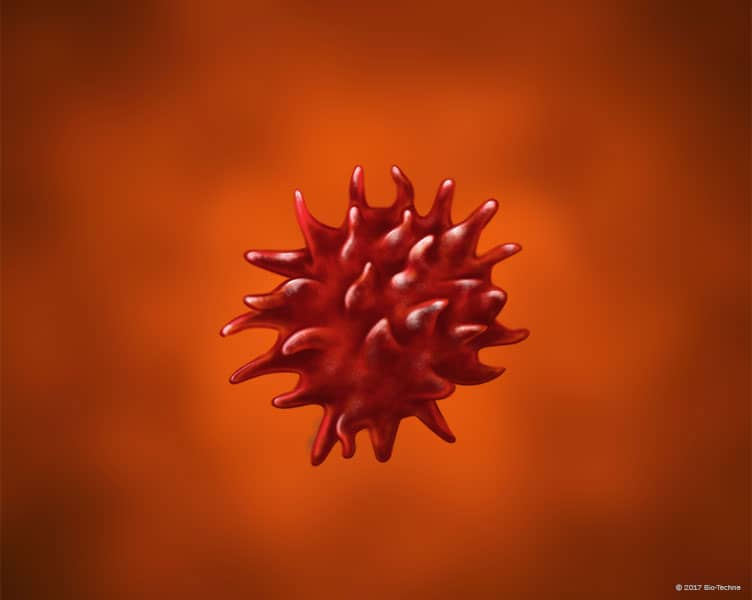Inflammatory Dendritic Cell Markers
Click on one of the dendritic cell types shown in the buttons below to see the human and/or mouse markers that are commonly used to identify the different dendritic cell subsets.

Overview
Inflammatory dendritic cells differentiate from blood monocytes at sites of inflammation and are therefore frequently called monocyte-derived dendritic cells. These cells are not present in steady-state tissues or lymphoid organs but are present in inflamed tissues following infection or injury. Inflammatory dendritic cells have been shown to be capable of stimulating effector T cell differentiation in both the draining lymph nodes and in inflamed tissues. In mice, inflammatory dendritic cells are identified based on their expression of CD11b/Integrin alpha M, CD11c, F4/80, Ly-6C, MHC class II, and CD64/Fc gamma RI and lack of expression of lineage markers. Additional markers include CD107b/Mac-3, Fc epsilon RI alpha, and MMR/CD206. In humans, inflammatory dendritic cells have been characterized as CD1a+, CD1c/BDCA1+, CD11b/Integrin alpha M+, CD11c+, CD14+, CD64/Fc gamma RI+, Fc epsilon RI alpha+, HLA-DR+, MMR/CD206+, and SIRP alpha/CD172a+ cells that lack expression of lineage markers.


